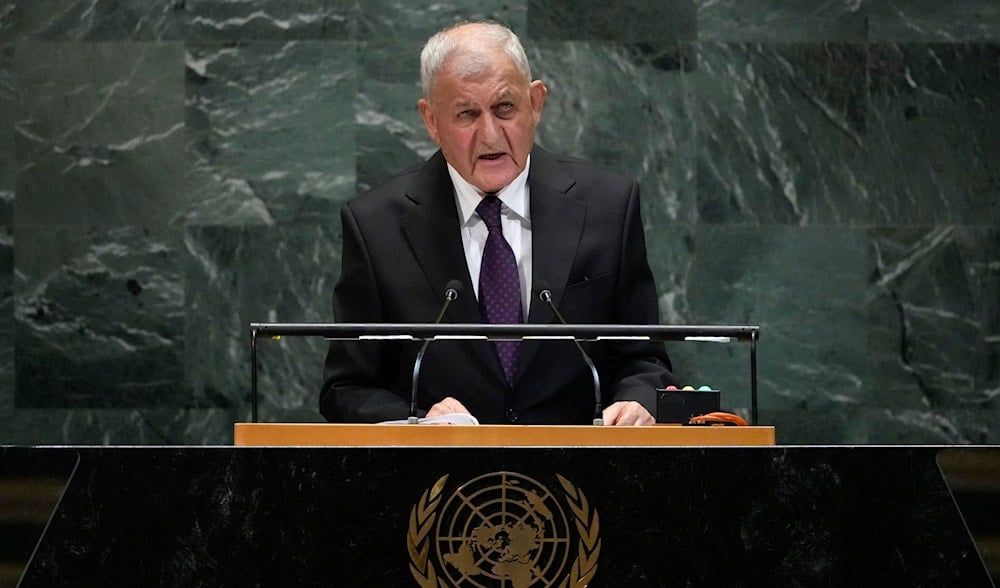Palestinian statehood path to regional, global stability: Iraq
Iraqi President Abdul Latif Rashid urges the establishment of a Palestinian state as key to Middle East peace, condemning Israeli attacks in the region, and emphasizing Iraq's commitment to diplomacy and development.
-

President of Iraq, Abdul Latif Rashid, addresses the 80th session of the United Nations General Assembly, Tuesday, September 23, 2025, at UN headquarters. (AP)
The establishment of an independent Palestinian state is the only path toward achieving long-term security and stability in the Middle East and the world, Iraqi President Abdul Latif Rashid stated in his address before the United Nations General Assembly.
During his speech, President Rashid said the situation in Gaza is a stark example of selectivity in the application of human rights, but welcomed the increasing international recognition of the State of Palestine.
At the same time, Rashid strongly condemned the expanding Israeli aggression in the region, particularly the attacks on Qatar, Lebanon, and Syria, and denounced the use of Iraqi airspace for any military operations, calling such actions a violation of Iraqi sovereignty and a direct threat to national security.
Iraq promotes regional peace
The Iraqi president also announced his country's support for a Turkish initiative aimed at encouraging the Kurdistan Workers' Party to abandon its arms.
Moreover, he emphasized Iraq's commitment to the principle of good neighborliness, especially with Kuwait, and underlined Baghdad’s intention to foster regional peace through dialogue and diplomatic engagement.
Rashid stressed that Iraq seeks to play a balanced and open role in regional affairs, promoting cooperation and the peaceful resolution of conflicts to reduce tensions across the Middle East.
Rashid highlights Iraq's development goals
On the domestic front, the president emphasized Iraq’s commitment to achieving sustainable economic and social development, highlighting efforts to reduce dependence on oil revenues and to expand investment opportunities, particularly in critical sectors such as water, electricity, and infrastructure.
Although Iraq is the world's second-largest oil producer within OPEC, it has been unable to meet domestic power demand since the 2003 US-led invasion. Millions of Iraqis still rely on costly private generators, a strain that fuels social unrest.
Rashid reaffirmed that these development goals are closely tied to Iraq’s foreign policy approach, which prioritizes regional diplomacy and the pursuit of stability through peaceful means.
Read more: Al Mayadeen Plus launched in Iraq, spotlighting upcoming elections

 2 Min Read
2 Min Read








